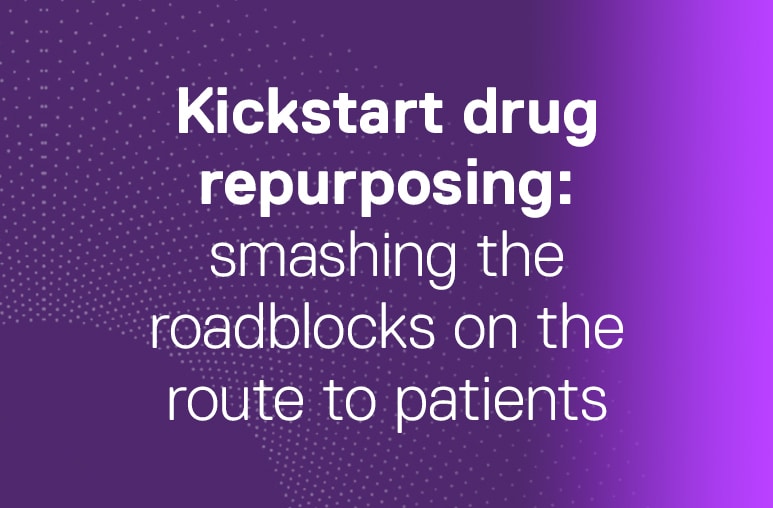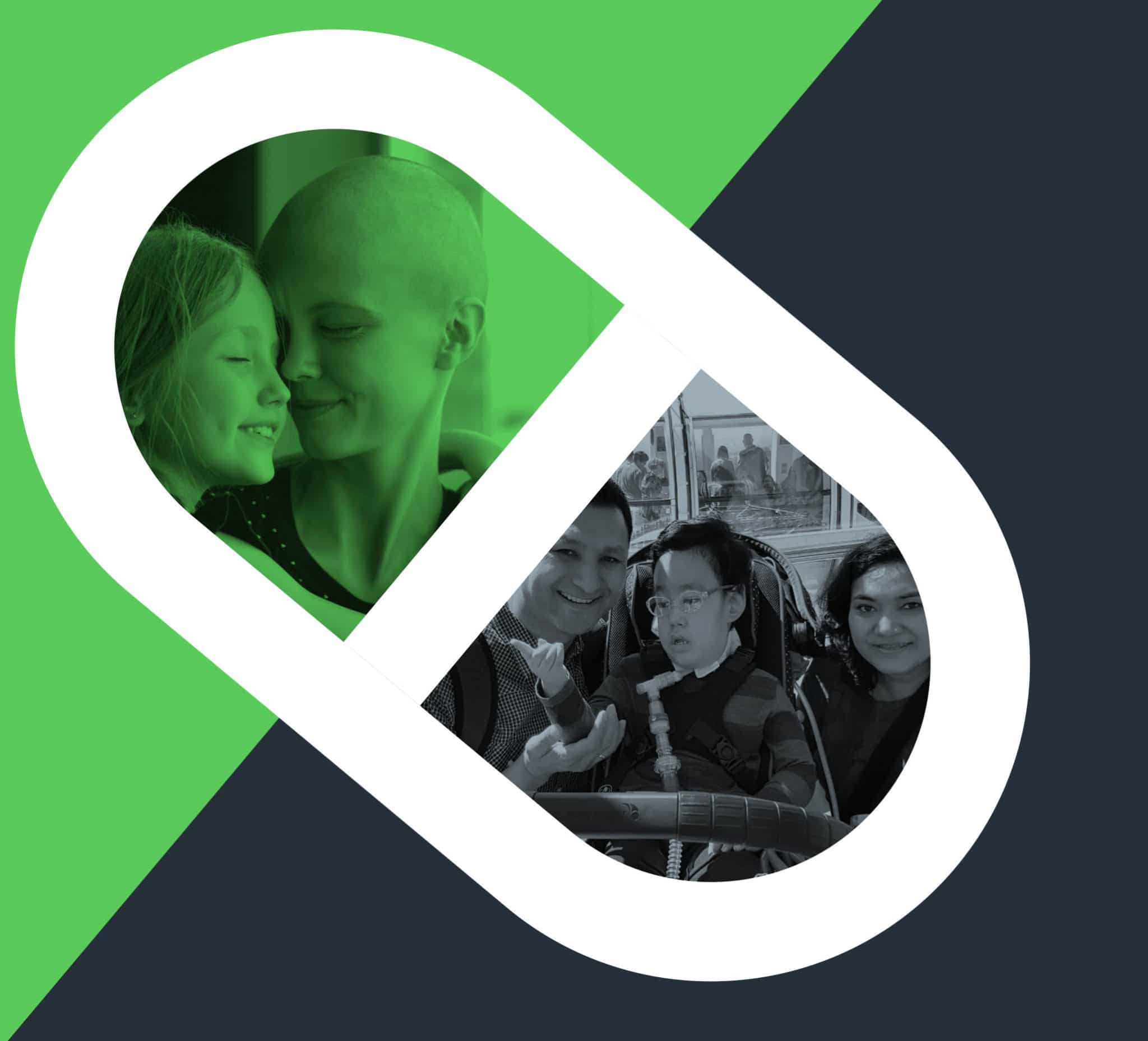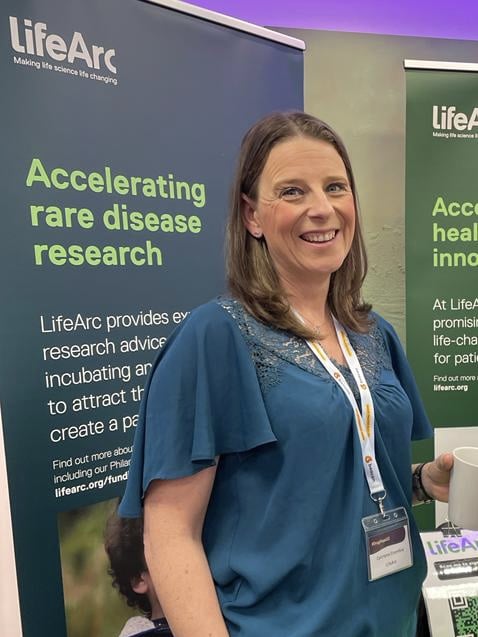LifeArc and Pinsent Masons hosted a panel of experts to discuss the opportunities and challenges faced by charities and researchers searching for new uses for old medicines.

Drug repurposing – finding new uses for existing medicines –offers a potentially rich source of safe and effective therapies for both common and rare diseases. The benefits include the possibility of lower costs and shorter timeframes for getting life-changing treatments to patients.
The approach has experienced recent success in the fight against COVID-19. For example, tocilizumab, originally an arthritis drug, was discovered as an effective treatment for hospitalised patients – typically in addition to dexamethasone, another repurposed drug shown to have lifesaving benefits.
But while high-profile stories provide a catalyst for drug repurposing, significant challenges remain.
As a medical research charity that focuses on translating discoveries into patient benefits, we joined up with Pinsent Masons, a global law firm with a market leading life sciences practice to hold a seminar to help charities and researchers devise their strategies to repurpose drugs and to examine the path to treatment.
The virtual event was held on 9th March 2021, attracting more than 150 attendees – highlighting the huge level of interest in the topic.
Potentially ‘game-changing’
Jo Pisani, a LifeArc Trustee and Board member of Findacure, opened the meeting by sharing an impressive success story to highlight the potentially ‘game-changing’ benefits of drug repurposing for treating rare diseases.
Lymphangioleiomyomatosis (LAM) is a progressive lung disease that affects around two in a million women. Before 2015, lung transplantation was the only approved treatment option. But the drug rapamycin, also called sirolimus, is now the standard of care for women with LAM around the world.
Rapamycin was initially approved as an immunosuppressant for kidney transplant patients but is now approved for LAM following the impressive results of clinical trials showing its effectiveness. In most cases, taking the drug has replaced the need for lung transplantation, transforming the lives of women living with the condition.
Jo said that for LAM patients, rapamycin is “almost a wonder drug.”
Working in partnership
One of the key themes was the importance of working closely with different stakeholders on drug repurposing opportunities.
Several panel members emphasised the need to involve patients at the heart of discussions. Anne Lennox, Founding Trustee of the Myotubular Trust commented that “disease-specific organisations can really play a part in getting these therapies over the line”.
Anne also discussed the appeal of drug repurposing for families. As these medicines will already have an established safety profile, this can make it easier to encourage participation in clinical trials – which can be challenging for rare diseases. Another advantage is their potentially broader accessibility compared to some other treatments.
She also highlighted the importance of working with patients to determine relevant outcomes for measuring the success of a treatment. Drawing from her personal experience of losing her son at a very young age to myotubular myopathy, a progressive neuromuscular disorder, she said that “any improvement is an improvement – five percent might have made all the difference.”
Many panellists, including Anne, emphasised the benefits of seeking advice from the UK Medicines and Health products Regulatory Agency (MHRA) at any stage of the drug development process, but particularly at the outset. Dan O’Connor, a Medical Assessor at the MHRA, highlighted that this process is standard practice for commercial companies but is currently under-used by academics and charities.
Dan also drew attention to the MHRA’s new Innovative Licensing and Access Pathway (ILAP), which launched in January 2021. It aims to reduce the time to market for innovative treatments – including drug repurposing candidates. A medicine for a cancer-causing rare disease has already been awarded the first ‘Innovation Passport’ and will be accelerated through the approval process.
Overcoming potential barriers
Translating the huge potential of the approach into clinical practice to improve outcomes for patients remains challenging.
Taylor Fields, Senior Vice President of IntraBio, discussed the challenges around designing clinical trials to evaluate repurposed drugs for rare diseases. She highlighted the need to consider the potential accessibility of unlicensed products to patients – and the importance of faster development programmes to improve the chance that a drug is approved and made available, particularly for patients with progressive diseases before the window of opportunity is lost.
Nicole Jadeja, Partner at Pinsent Masons, discussed the challenges and opportunities around intellectual property (IP) and, in particular, patents – emphasising the importance of an IP strategy at an early stage in the process. While Paul Fleming, Technical Director of the British Generic Manufacturers Association (BGMA) highlighted the opportunities and challenges of repurposing off-patent generic and biosimilar medicines and encouraged interested parties to approach the association.
The last crucial stage of development, which needs to be considered early in the process, is paying for the treatment and Robert Whitemore of Roboleo & Co discussed the complex topic of drug reimbursement, describing the process as “rather like the game of snakes & ladders” – with progress helped or hindered by events during the journey. Dr Melanie Lee, Chief Executive Officer of LifeArc, had earlier touched on the importance of ensuring that drugs are made available to patients, remarking that “for patients, one of the worst things is knowing a drug is there and works but they can’t access it”.
Reaping the rewards
In 2017, the AMRC released the report, ‘Facilitating the adoption of off-patent, repurposed medicines into NHS clinical practice.’ NHS England and Improvement (NHSEI), in partnership with others, subsequently developed a report on how those national agencies would collecting address and action key repurposing opportunities.
These activities have led to the Repurposing Medicines Programme which launched in March 2021. This aims to identify and pursue opportunities to strengthen the evidence base, licensing, supply, cost effectiveness and equitable adoption of currently unlicensed or off-label medicines, where there is a benefit to the NHS and patients.
Drug repurposing offers hope of real benefits to patients. These initiatives should help accelerate opportunities for drug repurposing, enabling more patients to reap the potentially life-changing benefits from existing medicines as soon as possible.
Media contact
Hannah Severyn
Head of Media and PR at LifeArc



